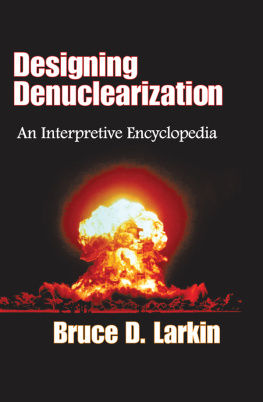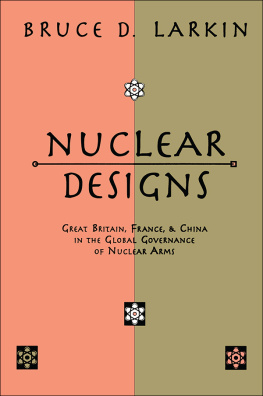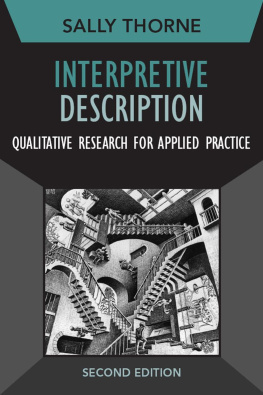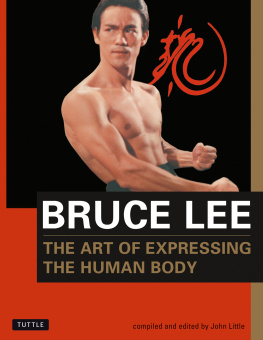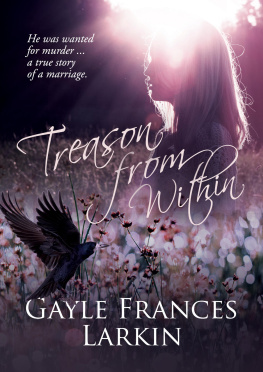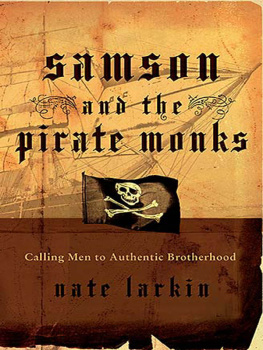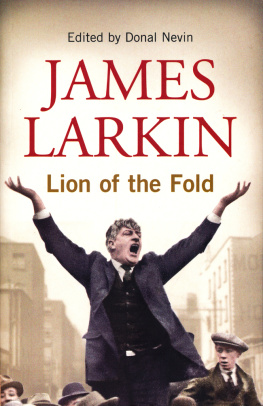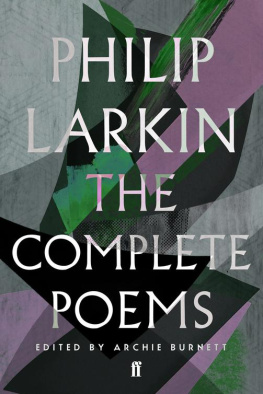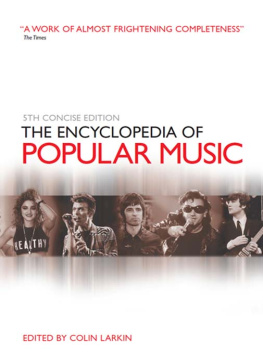Bruce Larkin - Designing Denuclearization: An Interpretive Encyclopedia
Here you can read online Bruce Larkin - Designing Denuclearization: An Interpretive Encyclopedia full text of the book (entire story) in english for free. Download pdf and epub, get meaning, cover and reviews about this ebook. year: 2008, publisher: Transaction Publishers, genre: Politics. Description of the work, (preface) as well as reviews are available. Best literature library LitArk.com created for fans of good reading and offers a wide selection of genres:
Romance novel
Science fiction
Adventure
Detective
Science
History
Home and family
Prose
Art
Politics
Computer
Non-fiction
Religion
Business
Children
Humor
Choose a favorite category and find really read worthwhile books. Enjoy immersion in the world of imagination, feel the emotions of the characters or learn something new for yourself, make an fascinating discovery.
- Book:Designing Denuclearization: An Interpretive Encyclopedia
- Author:
- Publisher:Transaction Publishers
- Genre:
- Year:2008
- Rating:5 / 5
- Favourites:Add to favourites
- Your mark:
- 100
- 1
- 2
- 3
- 4
- 5
Designing Denuclearization: An Interpretive Encyclopedia: summary, description and annotation
We offer to read an annotation, description, summary or preface (depends on what the author of the book "Designing Denuclearization: An Interpretive Encyclopedia" wrote himself). If you haven't found the necessary information about the book — write in the comments, we will try to find it.
Bruce Larkin: author's other books
Who wrote Designing Denuclearization: An Interpretive Encyclopedia? Find out the surname, the name of the author of the book and a list of all author's works by series.
Designing Denuclearization: An Interpretive Encyclopedia — read online for free the complete book (whole text) full work
Below is the text of the book, divided by pages. System saving the place of the last page read, allows you to conveniently read the book "Designing Denuclearization: An Interpretive Encyclopedia" online for free, without having to search again every time where you left off. Put a bookmark, and you can go to the page where you finished reading at any time.
Font size:
Interval:
Bookmark:
- As long as nuclear weapons exist, there is a risk that one or more will be used.
- The object of denuclearization is to achieve a world in which the risks of (a) nuclear weapon usedespite prohibitionand (b) conventional war are less than in a world of managed nuclear arsenals.
- We mean risks are less in this sense: that some integration of probabilities and scale is smaller.
- One of the problems with deterrence and managed arsenals is that neither probabilities nor scale can be known with confidence before the fact. Policy relies on speculation. But this is also true of a denuclearized world. Arguing that risks are less we must be mindful of uncertainty, and offer claims about the qualities of speculations put forward.
- Problem: denuclearization is not discussed.
- Problem: nuclearism is widely believed to be safe and manageable.
- Problem: nuclear weapons are believed by many to be useful, if not today, then in some uncertain tomorrow
- Problem: nuclearists contend that the genie cant be put back in the bottlethat is, now that youve got nuclear weapons, youre stuck with them.
Font size:
Interval:
Bookmark:
Similar books «Designing Denuclearization: An Interpretive Encyclopedia»
Look at similar books to Designing Denuclearization: An Interpretive Encyclopedia. We have selected literature similar in name and meaning in the hope of providing readers with more options to find new, interesting, not yet read works.
Discussion, reviews of the book Designing Denuclearization: An Interpretive Encyclopedia and just readers' own opinions. Leave your comments, write what you think about the work, its meaning or the main characters. Specify what exactly you liked and what you didn't like, and why you think so.

